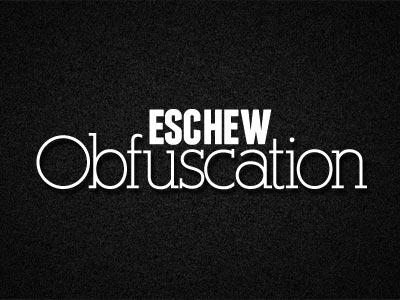As I read Framing Remix Rhetorically, I found myself thinking about a video I first watched in English class during senior year of high school—the Thug Notes summary and analysis of Hamlet.
Thug Notes is a YouTube web series aimed at students. In the videos, comedian Greg Edwards, acting as the character “Sparky Sweets, Ph.D.”, presents summaries of classical books using “street language” slang and vernacular. In the videos, Edwards-as-Sweets narrates the plot. There are shots of his character and shots of animated characters from the text—the faces of works of art are attached to stick-figure bodies to represent the main characters. Speech bubbles, superimposed facial expressions, and clip-art-type props give a stripped down version of the text in question as Edwards narrates the plot. This is about half of the video; the rest is analysis.
These videos strike me as both reappropriation and redistribution types of remix. They are, perhaps most obviously, redistribution—they take texts from Beowulf to Lord of the Flies that students may find boring of inaccessible and make subtle changes—the manner of sharing the plot—in hopes of “reaching a new audience, offering an updated message, and/or spreading a text further” (49). Jared Bauer, one of the producers of the series, says that “literature, especially the classics, are kind of enshrouded in deliberately difficult vocabulary in order to truly ‘get it’…Sparky in an abrasive way proves that no, I can explain it in slang and you can get it” (Lanning). The videos encourage students to read this material and learn about it outside of the classroom.
This is where Thug Notes takes on elements of reappropriation remix as well. The videos are edited and narrated to make texts accessible to a new audience because that audience feels some trouble in relating to the texts. The analysis section of each video presents multiple interpretations of various sections and encourages readers to figure out their own opinion of the texts often reserved for a kind of “sacred” scholarly space. By making texts like Shakespeare’s plays funny and relatable, Greg Edwards says that the videos are making literature “understandable, making it embraceable, making it usable” and that he thinks viewers will feel “empowered” by taking these texts for their own (Smiley). Dustin Edwards in Framing Remix Rhetorically comments on a remixed Levi’s ad, and says that “in an act of accepting yet recasting the phrase, the remix artist was able to claim a sense of agency” (48). This is strikingly close to what Thug Notes does—in accepting the traditional canonical texts as something of value, but shifting the attention on them to an irreverent and accessible one, the artists and viewers acquire a sense of agency.
Remix is a powerful tool, as Dustin Edwards says. I remember how much the students in my high school loved these videos—people had seen summaries of texts we hadn’t read in school, and made requests to play specific videos as the teacher scrolled down the list. I remember specifically someone asking for Crime and Punishment, which we had read in tenth grade and almost no one had enjoyed–and as everyone laughed, we watched with interest, too. As a pedagogical tool, remix, when done responsibly, can inspire students to learn and think about the texts being used.
Word Count: 588
Works Cited
Edwards, Dustin W. Framing Remix Rhetorically: Toward a Typology of Transformative Work. 24 Dec. 2015.
Lanning, Carly. “Thug Notes: Classical Literature, Original Thug.” The Daily Dot, 11 Dec. 2015, www.dailydot.com/upstream/wisecrack-thug-notes-interview/.
Smiley, Tavis. “Comedian-Actor-Writer Greg Edwards.” Tavis Smiley, PBS, 19 Mar. 2014, www.pbs.org/wnet/tavissmiley/interviews/greg-edwards
